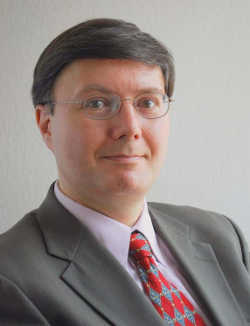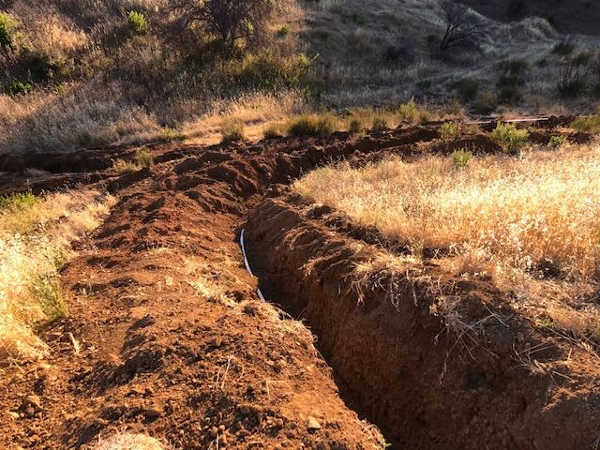- Elizabeth Larson
- Posted On
Lee, Thompson discuss legislative efforts to address racism, injustice
NORTHERN CALIFORNIA – As the nation continues to respond to the killing of George Floyd, members of Congress are presenting legislation meant to help dismantle racism, racial inequality and systemic injustice.
Bay Area Congresswoman Barbara Lee is helping lead the charge on a package of bills meant to address racial inequality and its broader social impacts.
One of the key efforts is Lee’s legislation to establish the first United States Commission on Truth, Racial Healing and Transformation.
It’s an approach that Lee said 40 other countries – including Rwanda – have taken to transform their countries by effecting social change and addressing racial disparities.
Lee’s announcement on the legislation said the commission’s purpose is to properly acknowledge, memorialize and “be a catalyst for progress toward jettisoning the belief in a hierarchy of human value based on race, embracing our common humanity and permanently eliminating persistent racial inequities.”
She said the commission will examine the effects of slavery, institutional racism, and discrimination against people of color, and how history impacts laws and policies today.
Members of Congress included in the coalition signing on to support the legislation include Rep. John Lewis (GA-05), a legendary Civil Rights leader; Rep. Karen Bass (CA-37), chair of the Congressional Black Caucus; Rep. Deb Haaland (NM-01), co-chair of the Congressional Native American Caucus; as well as Congressman Mike Thompson (CA-05), who represents the southern portion of Lake County.
Lee discussed the proposal and answered questions from North Coast residents during a virtual June 4 town hall meeting hosted by Thompson, her colleague and longtime friend, and a co-author of the legislation.
Lee and Thompson have served in government beginning with their time in the California Legislature. Both were elected to Congress in 1998.
Thompson’s virtual town hall on June 4, one in a series that has been used to discuss current issues, focused on Floyd’s killing, which he said “has rocked the nation, from one corner of the country to another.”
He said it’s a reminder about the discrimination that some people in the community face every day and, for the rest, a reminder that we need to do a better job.
During the discussion, he recounted how a member of his own staff, who is Asian American, told him recently about an encounter with an individual who acted in a bigoted and threatening way toward her in a store.
Bigotry and prejudice, he said, are "alive and well in every corner of my district, in your district, in this country and people are real quick to point out that that it's not them but it's there. It is absolutely there. We see it all the time."
Thompson said he and his colleagues have been discussing providing legislative responses to fix some of these systemic problems that have been plaguing the United States.
“I’m heartened that our colleagues are focused on this and they want to do something,” he said.
He added, “Congressional action is going to happen and it’s going to happen quick.”
In addition to working on legislation to collect data on bad cops, Thompson said they will also focus on areas including education, justice and civil rights, health care, labor and employment, and housing.”
On Monday, the Justice in Policing Act was introduced, with Thompson an original coauthor. The bill includes four main categories to allow for structural change that will begin the process of reforming policing nationwide. Thompson’s office said the bill includes accountability for police through the judiciary; improved transparency, widespread changes to the training programs that will address bias, ban practices such as chokeholds, and change the use of force standards; and making lynching a federal crime.
On Thursday Lee also reintroduced a bill to remove Confederate statues from the US Capitol.
A convergence of injustices
During the June 4 town hall – the same day that Lee’s legislation to create the Commission on Truth, Racial Healing and Transformation was formally introduced, with 114 cosponsors – Lee recounted how that when she and Thompson were in the California Legislature, they started the California Commission on the Status of African American Males, the first commission of its kind in the United States.
They worked on that effort for seven years, studying gaps and disparities in health care, and coming up with specific policy recommendations on what to do in California, which has one of the biggest prison populations.
“I hope people resurrect that here in California because we did quite a bit of work on that,” said Lee.
Despite this being a moment when people are sad and angry, “I see a lot of hope with our young people,” said Lee, describing protesters of different backgrounds and races coming together to call for change, not a return to the old ways.
“The old ways for some of us have been deadly,” she said.
At the same time, Lee said the black community is in a counter pandemic, with blacks dying at higher rates of COVID-19. She said the health system has been discriminatory and blacks have higher rates of underlying conditions.
African Americans and Latinx people also tend to be essential frontline workers and so more exposed to the virus, she said.
“We’re at that moment, that moment where we see a convergence of all of these injustices coming together,” she said.
In response, she and her colleagues are putting forward a package of bills that include her commission, as well as legislation to promote accountability and transparency for police departments, and a bill to establish the Commission on the Social Status of Black Men and Boys.
“Forty countries have done it, we’ve never done it,” she said of her proposed commission, explaining that most people don’t understand what has taken place when it comes to slavery and a wide range of other human rights violations against groups including Native Americans and Chinese immigrations.
She said many people also don’t see the connection between the past and historical context and George Floyd’s murder.
Lee was asked by a member of the virtual audience about how she would measure progress in reducing racism and discrimination in the United States.
She said that first it would be measured in a reduction of deaths involving police and health disparities, expunging records of African Americans and Latinx young people disproportionately impacted by marijuana arrests and offering them restorative justice, and seeing more of the tech industry include African Americans.
“The measurements would be clear. We would see more racial equity everywhere in the country and we would see less discrimination,” she said.
Lee also noted the huge wealth gap, with measures of success to include seeing more of the country’s low-wage workers making a living wage that allows them to take care of their families.
“So there are clear measures that we could see and it wouldn't take long if in fact we have the political will to do this,” Lee said.
In her final comments, Lee noted that the essence of patriotism is “liberty and justice for all.”
“I think we’re witnessing the birth of a new nation,” she said.
Email Elizabeth Larson at This email address is being protected from spambots. You need JavaScript enabled to view it. . Follow her on Twitter, @ERLarson, or Lake County News, @LakeCoNews.

























